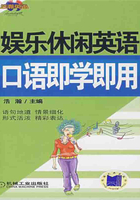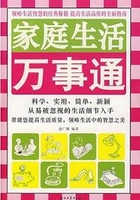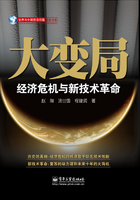不论发生什么事,不管是好是坏,思考它的意义吧。生活的目的是教会你如何开心更多,伤心更少。
你不能强求他人爱上你,你只能力求做一个值得别人爱的人,剩下就看他人是否认可你的价值了。
衡量爱的标准就是爱的时候不去衡量。
生活中,遇到你爱的并且爱你的人并不容易,因而,一旦遇到了,请一定要珍惜,这样的机会不可能有第二次。
为你所爱的人放弃自己的骄傲,要比为了骄傲而失去你所爱的人好得多。
我们花太多的时间寻找真爱,挑剔爱人的缺点。事实上,我们应全身心地为爱付出。
当你真正在乎一个人时,就不会对他吹毛求疵,不会找借口,也不会挑他的过错。相反,你会原谅他的过错,接受他的缺点,忽略他的借口。
不要与老朋友断绝往来,没有人能够替代他。要知道,友谊如酒,越久越醇。
记忆填空
1. God don’t promise days _______ pain, laughter without sorrow, sun without rain, but He do_______ strength for the day, comfort for the tears and _______ for the way.
2. When you feel_______ because you didn’t get what you _______ , just sit tight and be happy because God is thinking of something _______ to give you.
3. We spend too much time looking for the _______ person to love or finding fault with those we already love, _______ instead we should be perfecting the love we_______ .
佳句翻译
1. 没有人能回到过去,重新开始,但谁都可以从现在开始,开创一个崭新的未来。
2. 为你所爱的人放弃自己的骄傲,要比为了骄傲而失去你所爱的人好得多。
3. 不要与老朋友断绝往来,没有人能够替代他。要知道,友谊如酒,越久越醇。
短语应用
1. ...all you can do is being someone who can be loved, and the rest is up to the person to realize your worth.
up to:取决于;胜任;从事于,正在做
2. When you truly care for someone, you don’t look for faults...
care for:喜欢;牵挂;注重;照料;计较
欢乐是一门哲学
What Vanderbilt Paid for Twelve Laughs
奥里森?马登 / Orison Mardon
William K.Vanderbilt, when he last visited Constantin-ople, one day invited Coquelin the elder, so celebrated for his powers as a mimic, who happened to be in the city at the time, to give a private recital on board his yacht, lying in the Bosphorus. Coquelin spoke three of his monologues. A few days afterwards Coquelin received the following memorandum from the millionaire:
“You have brought tears to our eyes and laughter to our hearts. Since all philosophers are agreed that laughing is preferable to weeping,your account with me stands thus:
“For tears, six times: $600
For laughter, twelve times: $2, 400
——$3, 000
Kindly acknowledge receipt of enclosed check. ”
“I find nonsense singularly refreshing,” said Talleyrand. There is good philosophy in the saying, “Laugh and grow fat.” If everybody knew the power of laughter as a health tonic and life prolonger, the tinge of sadness which now clouds our face would largely disappear, and many physicians would find their occupation gone.
The power of laughter was given us to serve a wise purpose in our economy. It is Nature’s device for exercising the internal organs and giving us pleasure at the same time.
Laughter begins in the lungs and diaphragm, setting the liver, stomach, and other internal organs into a quick, jelly-like vibration, which gives a pleasant sensation and exercise, almost equal to that of horseback riding.
During digestion, the movements of the stomach are similar to churning. Every time you take a full breath, or when you cachinnate well, the diaphragm descends and gives the stomach an extra squeeze and shakes it.
Frequent laughing sets the stomach to dancing, hurrying up the digestive process.The heart beats faster, and sends the blood bounding through the body. “There is not,” says Dr. Green, “one remotest corner or little inlet of the minute blood-vessels of the human body that does not feel some wavelet from the convulsions occasioned by a good hearty laugh.” In medical terms, it stimulates the vasomotor centers, and the spasmodic contraction of the blood-vessels causes the blood to flow quickly. Laughter accelerates the respiration, and gives warmth and glows to the whole system. It brightens the eye, increases the perspiration, expands the chest, forces the poisoned air from the least-used lung cells, and tends to restore that exquisite poise or balance which we call health, which results from the harmonious action of all the functions of the body. This delicate poise, which may be destroyed by a sleepless night, a piece of bad news, by grief or anxiety, is often wholly restored by a good hearty laugh.
Grief,anxiety, and fear are great enemies of human life. A depressed, sour, melancholy soul, a life which has ceased to believe in its own sacredness, its own power, its own mission, a life which sinks into querulous egotism or vegetating aimlessness, has become crippled and useless. We should fight against every influence which tends to depress the mind, as we would against a temptation to crime. It is undoubtedly true that, as a rule, the mind has power to lengthen the period of youthful and mature strength and beauty, preserving and renewing physical life by a stalwart mental health.
I read the other day of a man in a neighboring city who was given up to die; his relatives were sent for, and they watched at his bedside. But an old acquaintance, who called to see him, assured him smilingly that he was all right and would soon be well. He talked in such a strain that the sick man was forced to laugh; and the effort so roused his system that he rallied, and he was soon well again.
Was it not Shakespeare who said that “a light heart lives long?”
Physiology tells the story. The great sympathetic nerves are closely allied; and when one set carries bad news to the head, the nerves reaching the stomach are affected, indigestion comes on, and one’s countenance becomes doleful. Laugh when you can; it is a cheap medicine.
Merriment is a philosophy not well understood. The eminent surgeon Chavasse says that we ought to begin with the babies and train children to habits of mirth:















